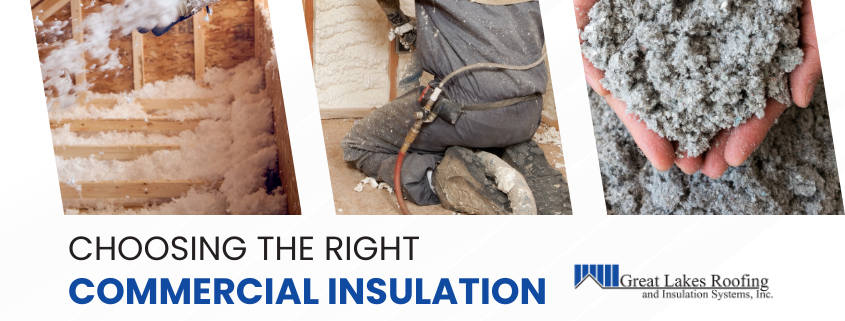Commercial insulation is a critical component of any building, as it can significantly impact energy efficiency, comfort levels, and overall operating costs. With various types of insulation available, each with its unique properties and benefits, making the right choice can be overwhelming. In this guide we’ll help you navigate the different types of commercial insulation, their advantages and disadvantages, and factors to consider when making your decision.
Factors to Consider When Choosing Commercial Insulation
- R-Value: The R-value measures the insulation’s ability to resist heat flow. The higher the R-value, the better the insulation’s performance.
- Cost: Insulation costs can vary significantly depending on the type and amount needed. Consider your budget and the long-term energy savings when making your decision.
- Building Type and Application: The type of building and the specific application will also influence your choice. Consult with an expert like our team to determine what options will work best for you.
- Environmental Impact: If environmental concerns are important to you, consider eco-friendly options like cellulose or recycled content fiberglass.
Top Types of Commercial Insulation
We offer three types of insulation solutions for walls, attics, cathedral ceilings, and crawl spaces: blown-in fiberglass, blown-in cellulose, and spray-urethane foam.
- Fiberglass: Fiberglass is one of the most common and cost-effective types of commercial insulation. When blown into attics and wall spaces, loose-fill fiberglass has an R-value of about 2.6 per inch. It is naturally non-flammable, doesn’t absorb moisture, and doesn’t support mold growth. It is considered an eco-friendly product since it is made with a minimum of 55% recycled glass.
- Cellulose: Cellulose insulation is another eco-friendly option made from recycled paper or cotton. It comes in loose-fill and can be blown into walls, attics, and other areas. Cellulose offers good thermal and sound insulation, as well as fire resistance. It is also treated with borates to resist pests and mold.
- Spray Foam: Spray foam insulation is a two-component liquid that expands and hardens upon application. It can be applied to walls, roofs, and other areas to create an airtight seal. Spray foam offers excellent thermal insulation and can help reduce air leakage, improving energy efficiency.
Great Lakes Roofing: Your Commercial Insulation Experts
At Great Lakes Roofing, we understand the importance of choosing the right insulation for your commercial building. Our experienced team can help you assess your building’s needs and recommend the best insulation solutions for your budget and goals. Contact us today to schedule a free consultation and learn how we can help you improve your building’s energy efficiency and comfort!

